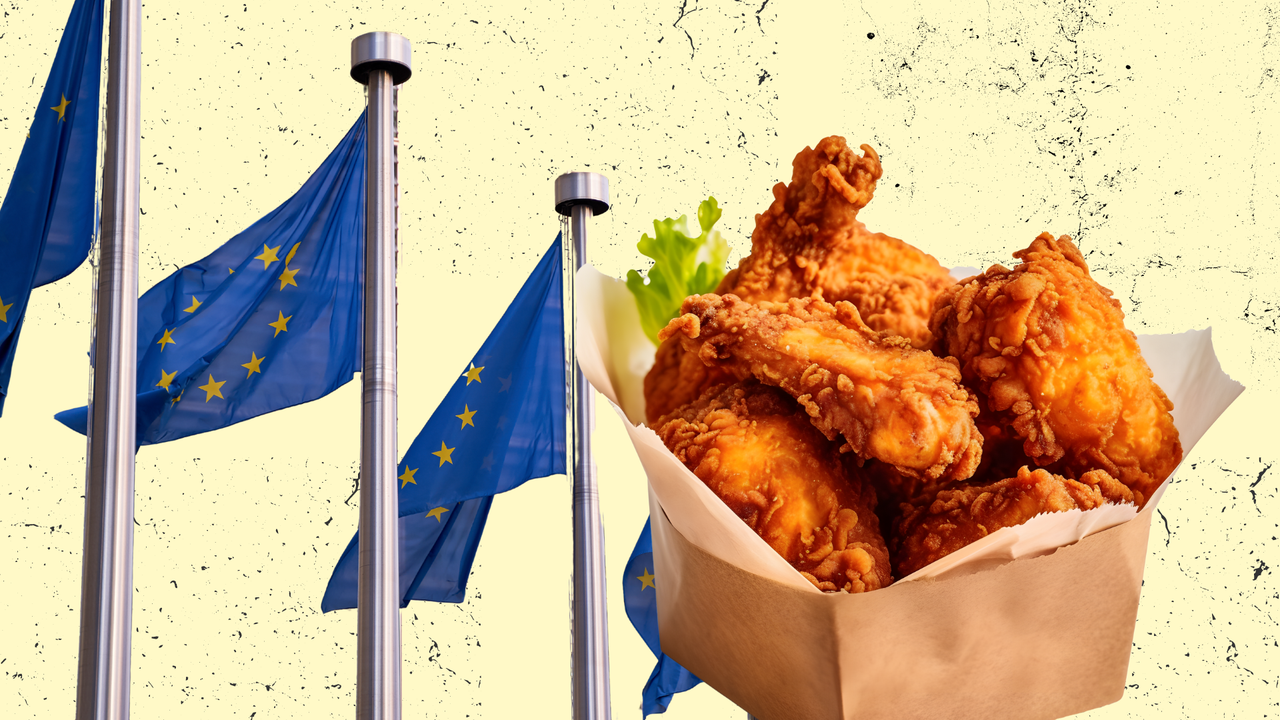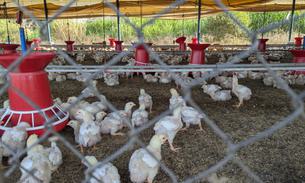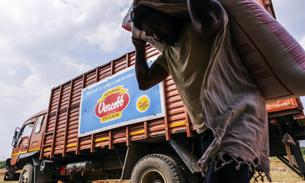
Exclusive: UK weighs up ban on Polish chicken after salmonella surge
UK food safety chiefs are considering a ban on some Polish poultry products in response to rising salmonella infections, the Bureau of Investigative Journalism (TBIJ) can reveal.
In a letter sent to the European Commission and Poland’s chief veterinary inspectorate in December, officials said they were concerned about the failure to tackle the disease in contaminated meat and eggs exported to the UK.
“Owing to the significant public health risks, we are considering the options available to us to protect UK consumers,” the Food Standards Agency (FSA) chief executive Emily Miles and the UK’s chief vet Christine Middlemiss wrote. They said they would consider potential “safeguard measures on affected products”.
The letter, obtained by TBIJ and ITV News, highlighted a rise in salmonella cases linked to Polish poultry since the FSA last raised the matter. It listed six major outbreaks that resulted in at least 2,680 human infections and several deaths in recent years – numbers not previously acknowledged by the UK government.
The FSA’s intervention comes less than a year after a TBIJ and ITV investigation linked a major Polish chicken supplier to the spread of antibiotic-resistant infections. It also follows more recent salmonella warnings in the UK and Europe.
In December, the FSA told consumers to “take care” when handling chilled and frozen chicken and turkey as it investigated multiple strains of salmonella linked to Polish poultry products imported to the UK.
Before that, the European Food Safety Authority (EFSA) issued an alert linking more than 330 human salmonella cases to infected poultry in 2023. Most of the contaminated food samples originated from Poland. Among those made sick were young children and babies, with victims identified in Denmark, France, Ireland, Italy, the Netherlands, the UK and Austria – where one person died.
Polish poultry products have been linked to more than 100 EU-wide food safety alerts since the publication of the original TBIJ investigation in June 2023, most of them involving salmonella contamination.
Poland’s chief veterinary inspectorate said there was no conclusive evidence indicating that products originating from Poland were the source of three salmonella outbreaks reported by the EU alert system in 2023. Due to there being different end producers who, in turn, have their own meat suppliers, “the participation of other entities operating on the food market as sources of infection cannot be confirmed or excluded”, it told TBIJ.
The body added that it adheres to EU regulations with respect to salmonella and antimicrobial resistance, and cooperates with UK authorities on food poisoning investigations.
Anjali Juneja, director of UK and international affairs at the FSA, said the department has engaged with Polish authorities and action has been taken to improve the safety and compliance of poultry meat and eggs imported from Poland as a result. She added that it had seen a recent decline in salmonella cases originating from the country and that it would take necessary action – including controls on specific importers – to protect consumers should the number of incidents increase, or there be any other concerning data.
The FSA welcomed moves to increase traceability and export requirements introduced in January, and said heightened controls would be brought in in April. An in-country audit of poultry facilities in Poland exporting to the UK will also take place next month, it confirmed.
The EFSA echoed Poland’s Veterinary Inspectorate in saying that the lack of conclusive evidence, comprehensive traceability, and the possible involvement of other food companies in the relevant outbreaks meant their original source couldn’t be confirmed.
Superbugs
Records seen by TBIJ reveal that some of the salmonella strains responsible for recent illnesses in the UK and Europe were resistant to antibiotics classified as “critically important” to human health by the World Health Organization (WHO). Such superbugs could make serious cases of food poisoning harder to treat.
The findings come as Poland’s use of veterinary antibiotics has continued to soar, despite ongoing concerns about the health impacts of the overuse of such drugs in livestock production. Sales of some classes of critically important antibiotics increased in 2022, in contrast to other EU countries, which have curtailed use on farms.
Richard Griffiths, the chief executive of the British Poultry Council (BPC), told TBIJ that the connection between antibiotic-resistant salmonella and contaminated products from Poland “raises serious concerns”.
“British poultry meat producers have worked hard to build a food system that people trust and value, ensuring high standards from farm to fork,” he said. “BPC members have reduced their antibiotic use by almost 80% and adhere to rigorous regulatory processes when it comes to salmonella control. It is frustrating that Poland is unable to do the same.”
The BPC recently called for “every single load” of Polish poultry imported into the UK to be checked.
Lindsay Duncan, the farming campaign manager at World Animal Protection, a non-profit animal welfare organisation, said: “It is alarming to see the rise in sales of antibiotics classed as critically important in Poland for use on farms. [Such drugs] should be reserved as last resort treatment.” She added that they should never be used on farms to compensate for poor hygiene standards.
Some of the bacteria in infected Polish chicken was resistant to ciprofloxacin, meaning that the critically important drug could not kill the salmonella bacteria. Other salmonella linked to the outbreak was found to harbour genes that showed resistance to colistin.
Records also show that salmonella resistant to further types of antibiotics was linked to a UK outbreak in 2023 involving Polish eggs. At least 65 people fell sick as a result – many of them customers at a single restaurant.
An official investigation found that some of the victims – who included a six-year-old – reported symptoms including vomiting, diarrhoea, fever and abdominal pain. Ten people were hospitalised and nearly 50 were forced to seek medical attention.
Researchers reported that “epidemiological and ongoing food chain investigations suggest that imported eggs from Poland are the likely source of this outbreak”.
Poland’s chief veterinary inspectorate said tests showed no link between Polish eggs and food poisoning cases in the UK.
‘Great concern’
Contaminated Polish turkey and chicken bought in the UK was also recently found with E coli harbouring the Mcr-1 gene, which causes resistance to colistin, a “highest priority” drug for human medicine according to the WHO.
“Resistance to colistin is of great concern to governments, medics and scientists across the world”, said a report detailing the findings, also released in December 2023.
Colistin is an antibiotic that has been used extensively on farm animals globally, including in Europe, although use has dramatically fallen in recent years. Poland, however, has recorded significant increases in its veterinary sales of colistin in recent years.
Poland’s chief veterinary inspectorate said that levels of bacteria carrying the Mcr-1 gene were very low in the country.
Kath Dalmeny, chief executive of the campaign group Sustain, called for colistin use in livestock farming to be banned. “It is shocking to see Poland increasing [colistin] use,” she said. “This is why regulation is so badly needed, to ensure that all governments and livestock farmers play their part in preserving essential antibiotics for combatting very serious infections in people.”
Reporter: Andrew Wasley
Impact producer: Grace Murray
Environment editor: Rob Soutar
Deputy editors: Katie Mark and Chrissie Giles
Editor: Franz Wild
Production editors: Emily Goddard and Alex Hess
Fact checker: Jasper Jackson
Our reporting on antimicrobial resistance is part of our Environment project, which has several funders. None of our funders have any influence over our editorial decisions or output
-
Area:
-
Subject:





